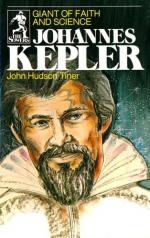|
This section contains 11,500 words (approx. 39 pages at 300 words per page) |

|
SOURCE: "Kepler's Scientific Ideas," in The Discovery of Kepler's Laws: The Interaction of Science, Philosophy, and Religion, University of Notre Dame Press, 1994, pp. 84-109.
In the following essay, Kozhamthadam examines the lasting contribution of Kepler's scientific principles and discusses his methodology.
Among the founders of modern science Kepler occupies an immortal place. But he would not have earned this privileged position for himself had he stopped at his religious and philosophical views, insightful and creative though they were. He could go beyond most of his contemporaries and rise above their world infested with mysterious and occult forces, precisely because he demanded that his system should include empirical or scientific thought as well. He enjoyed speculating, he could soar to the heights of speculative ideas, yet he never lost contact with the ground. Time and again he insisted that no idea, however startling and attractive, was any good if...
|
This section contains 11,500 words (approx. 39 pages at 300 words per page) |

|


